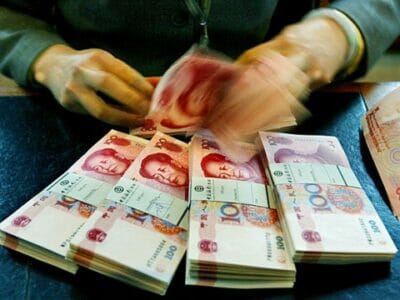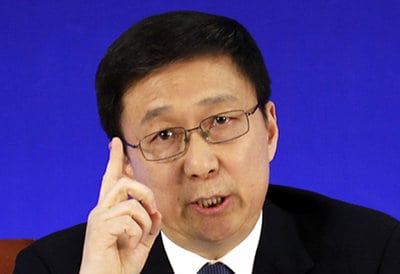
More Chinese cash may soon be headed overseas
One of the great mysteries of the boom in purchases of international real estate by Chinese investors has been how all of the cash for these purchases gets overseas from a country where capital accounts and foreign exchange are strictly controlled.
At least part of that riddle was solved this month when a network of underground banks was busted in Beijing, and this crackdown may be part of a growing effort by China’s government not to cut off outbound capital flows, but to channel them into newly opened legal channels.
The decision by the government to make it easier for its citizens to invest overseas may be an acknowledgement of the lack of attractive investment alternatives domestically, as well as a sign of the growing confidence among policy makers that the country’s financial system is able to withstand the stresses of greater flows of funds in and out of the country.
10 Operations Shut Down After Moving $22B Overseas
In a series of police raids, the authorities in China’s capital shut down ten underground “banks” that were said in a report by Xinhua to have moved $22.6 billion out of China.
The illegal money transfer operations had used more than 800 borrowed, rented or purchased bank accounts to buy the maximum annual limit per person of $50,000 in foreign currency and move it out of the country.
While the raids were strictly a local Beijing operation, a Reuters report earlier this year reported similar money transfer businesses in Zhuhai, and its likely that similar black market money transfer firms are found in most major Chinese cities.
Even the state-owned Bank of China had an unofficial money transfer business operating until earlier this year when a CCTV report exposed the gray market portal for capital outflows.
One Door Closes, Two More Open
The raids were announced just days before China unveiled two new ways for its citizens to move their wealth out of the country.

Shanghai Party Secretary Han Zheng has big plans for using the FTZ to open up capital outflows
On Monday, the government brought out Stock Connect, a program which allows overseas investors to buy mainland stocks through Hong Kong brokerages, but also enables Chinese citizens to invest in the Hong Kong stock market. Under the new scheme, popularly called the Through Train, wealthy mainlanders are allowed to send up to RMB 10.5 billion ($1.7 billion) across the border into Hong Kong each day.
Just the day before Stock Connect debuted, the Shanghai government predicted that it would open an even bigger door for capital outflows from China through its free trade zone (FTZ) that opened last year.
While the FTZ is already making it easier for private equity firms and corporates to avoid China’s usual restrictions on capital accounts, this latest announcement by the government indicated that the same open door to overseas investment would soon be available to qualifying individuals.
In an interview, Shanghai’s top official and a member of China’s politburo, Han Zheng said, “One of our key objectives is allowing qualified individuals within the free trade zone to open capital accounts in a gradual and orderly manner, on condition of good risk control.”
With China’s wealthy classes already buying overseas property in record numbers, allowing the FTZ to be used to move cash out of the country safely and legitimately could potentially lead to much greater movements of capital in the years to come.
Unofficial Money Exchange Channels Still Booming
Despite the efforts by China’s government to rationalise its cross-border capital flows there remain clear indicators that unofficial channels for money exchange continue to flourish.
Even if the government achieves further success in shutting down black market money transfer businesses, the most recent customs data indicates that many trading companies are shipping cash overseas through inflated or faked invoices.
There are also a number of methods involving cross-border cash swaps, or onshore payment of offshore loans through private banks that allow individuals to get money out of the country.
What is clear, however, is that while the authorities are fighting to restrain some of the more clearly illegal of these channels, they are also moving quickly to open up larger and more easily accessible officials paths for giving Chinese investors access to overseas investment opportunities.
Leave a Reply